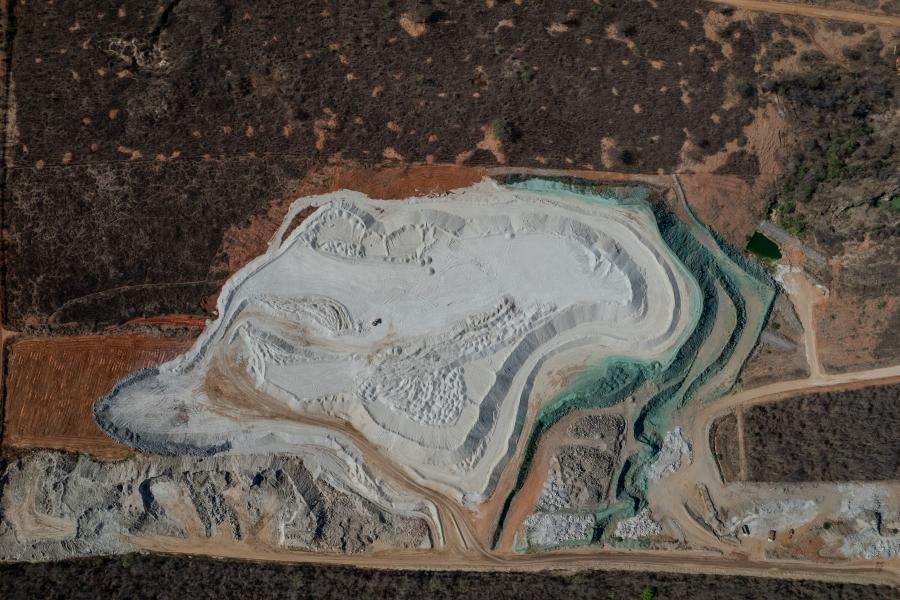Assyrians started their immigration to the U.S. and Europe more than 100 years ago. The Assyrians of today number more than five million and are the direct descendants of the ancient Assyrian and Babylonian empires. Immigrants from Iraq and Iran preferred to settle in the U.S. and Australia, while Assyrians from Turkey preferred to settle in Europe. The Internet is finally uniting these Assyrian communities in diaspora, regardless of their geographic, educational, and economic backgrounds.
The Assyrian Diaspora
After the fall of their empire in the sixth and seventh centuries B.C., the Assyrians were reduced to a small nation living at the mercy of their overlords in the Middle East. Assyrians were one of the first people to embrace Christianity and due to their religious beliefs, they suffered numerous atrocities over the following centuries.
In the middle of the 19th century, Assyrians came into contact with the Western world. Also during this time, they experienced a cultural renaissance and played an instrumental role in the economic, political, and educational development of much of the Middle East. During the reign of the Ottoman Empire, however, they fell victim to the massacres inflicted upon most Christians -- Assyrians and Armenians alike -- by the Turks.
During WWI, they joined the Allied Forces to defend themselves against attacks by the Turkish forces and were deemed `our smallest ally' by British historians. In 1918, a few months before the end of the war, Assyrians were isolated and without ammunition. They had no choice but to retreat from Urmia, Turkey, via Hamadan, Iran to the British forces in Baghdad. In this long and costly exodus, the Assyrians lost more than one-third of their population in the constant attacks from all sides. Many fell victim to severe weather, epidemics, and other hardships. Assyrians from northwestern Turkey in Tur Abdin and Midyat suffered similar experiences as they were chased from their homeland to northwest of what is now Syria.
In exchange for their services during WWI, Britain, France, and Russia promised to give the Assyrians a safe and independent homeland in the area of northern Iraq known as `Assyrian Triangle.' This land never materialized and the tensions between the Assyrian population and Iraqi government culminated with a massacre in Simeil, Iraq in 1933. From this time on, the Assyrian diaspora began in an effort to find a safe haven and protect themselves from total elimination.
After the Gulf War in 1992, their situation worsened. While reports focused mainly on the Kurdish refugee situation, more than 250,000 Assyrians fled Iraq towards Turkey, Iran, and Syria. Thousands of Assyrians who fled, died enroute and others suffered unbearable hardships. During their bloodstained history, the Assyrians of Turkey have suffered inhumane atrocities and have never enjoyed equal cultural, ethnic, or human rights. On the contrary, they have constantly been under pressure by their non-Assyrian neighbors to leave their homes and land and flee outside the borders. The recent attacks on villages and the deaths of innocent men, women, and children have reduced the remaining Assyrian population of northern Iraq and Turkey to a small group of terrified and desperate people that await total elimination while today's civilized world watches.
Although the Assyrian refugee migration began before WWI, the mass migration started in 1975 after the Algerian treaty between Iran and Iraq that enabled Saddam Hussein to destroy many Assyrian and Kurdish villages in the north. Many were executed; hundreds of thousands were forced to leave their lands and resettled in southern Iraq.
Home on the Internet
Today, Assyrians are one of the most widely scattered indigenous peoples. Most Assyrian families in the U.S. generally have relatives in Australia, Sweden, Lebanon, Iraq, or Canada. For such a small nation scattered throughout the world, the Internet is a dream come true.
Unfortunately, little is known in the West about Assyrians, our language, or our traditions. More importantly perhaps, our contributions to human civilization have been neglected due to the repressive regimes in the Middle East. In many Middle East countries, we do not have the right to publish our own newspaper or magazine, nor are we free to teach our own language (the Assyrian language is referred to as `neo-Aramaic,' `Chaldean,' or `modern Syriac'). In Iraq, our fundamental human rights were, and continue to be neglected.
Beyond this, the extremely oppressive ideology of Ba'athist regimes in Iraq and Syria denies the very existence of Assyrians as a distinct ethnic group; it tolerates us solely as a Christian subset. In reality, our Christian religion is divided into the Apostolic and Catholic Assyrian Church of the East, Free Assyrian Orthodox Church of Anitoch, Chaldean Catholic Church, and the Protestant Church. Our history is falsified and misused to suit pan-Arabic ideology. We are forbidden to teach our own history or to promote and develop our cultural identity in any way. Particularly, under the dictatorship of Saddam Hussein, Iraq punishes Assyrian national activity with persecution and death. Many Assyrian patriots are either imprisoned or have been murdered. This reign of terror has been well-documented by human rights groups such as Amnesty International and from personal accounts by most of us who left countries, such as Iraq, in search of refuge and civilized order in Europe, Australia, and America.
In May 1995, I participated in `Ties That Bind,' the 1995 Community Networking Conference held at Apple Computer headquarters in Cupertino, California. It was there that I learned a great deal on how to serve the Assyrian community by utilizing the Internet. My use of the word `community' is some-what different than most, in that I am applying it not only to a local community, but to a global community as well.
Thanks to the Internet, today for the first time, average Assyrians are free to write about themselves, their history, and their dreams. This is an opportunity, which they could not imagine enjoying in their homeland. It is no small wonder that our people endorse the maxim, `God Bless America!'
'Nineveh On-Line' started as a local BBS, or bulletin board system, in Hollister, California in late 1994. Nineveh, located in modern-day Iraq, is the name of the Assyrian capital, a great city mentioned in the book of Jonah in the Bible. By early 1995, with considerable support from Hollister Internet hyperlink that included unlimited space on their server and various other free services, we were able to build a home for my people in cyberspace.
Today, Nineveh On-Line is home to over 100,000 visitors per month. Other activities include an annual Community Networking Conference and workshops for local Assyrian community organizations and churches. Since the Assyrian presence became visible in the Internet community a few years ago, dozens of web pages have been created that try to mirror the multifaceted nature of the Assyrians.
Now, the global community can learn a great deal about our traditions, language, and history on the Internet. Assyrians of today are not only scattered all over the world, but have also been identified by several terms, religious, as well as ethnic. This is reflected in the various web pages accessible on the Internet which can sometimes be a source of confusion for nonexperts. Consequently, one may find pages developed by those who have emigrated their homeland to resettle in Europe (i.e. Sweden and Germany), and one may note that the segment of this population tends to produce more Churchoriented pages.
The web pages presented by the U.S.-Assyrian community are well organized and offer plenty of information about the Assyrian culture and our activities. These pages have been developed by individuals, as well as organizations and links have been established between most of the pages. Beyond presentations on the church organization, our faith, and our history, we also see web pages with a focus on our ethnic background that refer to Assyrians, Arameans, and our language, `Syriac.'
Increasingly, one may observe the use of Syriacor, the Aramaic language on the Internet. But because the Syriac alphabet is different from English, special fonts need to be developed to view the language correctly. Currently, Tim Ericson, an American from Modesto, California is in the process of developing Islamic fonts for use on-line.
The Chaldean web pages and webmaster serve as an information exchange between the website visitor and the various communities trying to bridge the gaps that existed for decades in the Middle East. The hope is to have a unified Assyrian presentation. The struggle of the Assyrian people has always been, and it remains, the preservation of our important heritage.
Wherever we may land, Assyrians live in peace within the community, which receives them and they readily accept the responsibilities of their acquired citizenship. Assyrians seek the same rights and privileges extended to all citizens. We also want to serve as a voice of conscience in the Western community for all of the relatives and fellow Assyrians who remain behind and who continue to exist in Draconian conditions.
Article copyright Cultural Survival, Inc.



